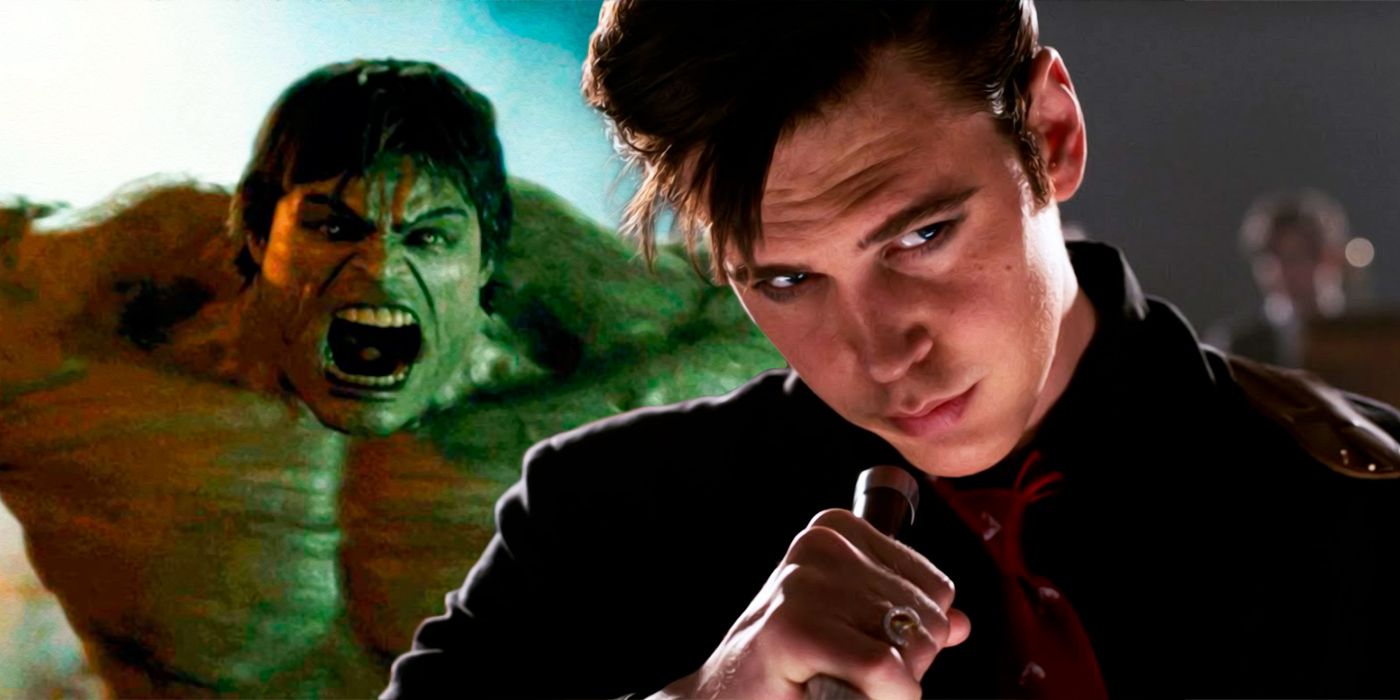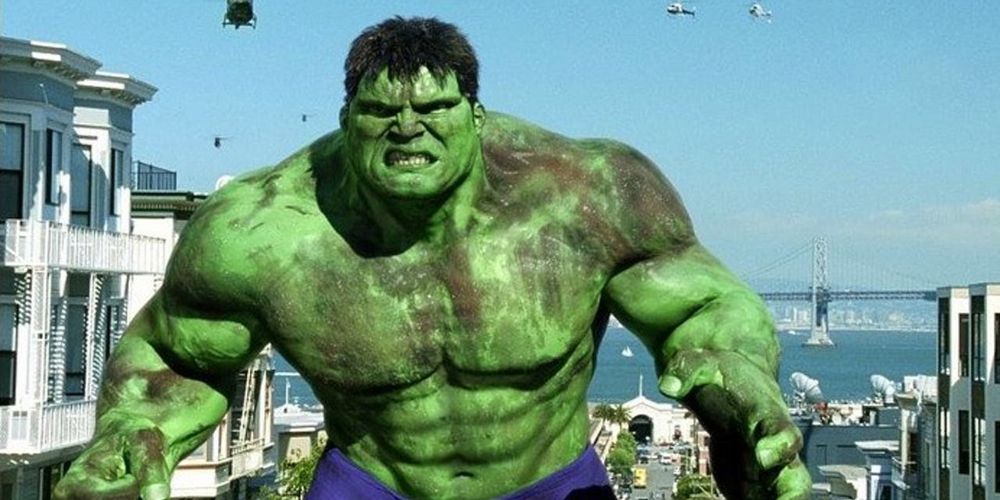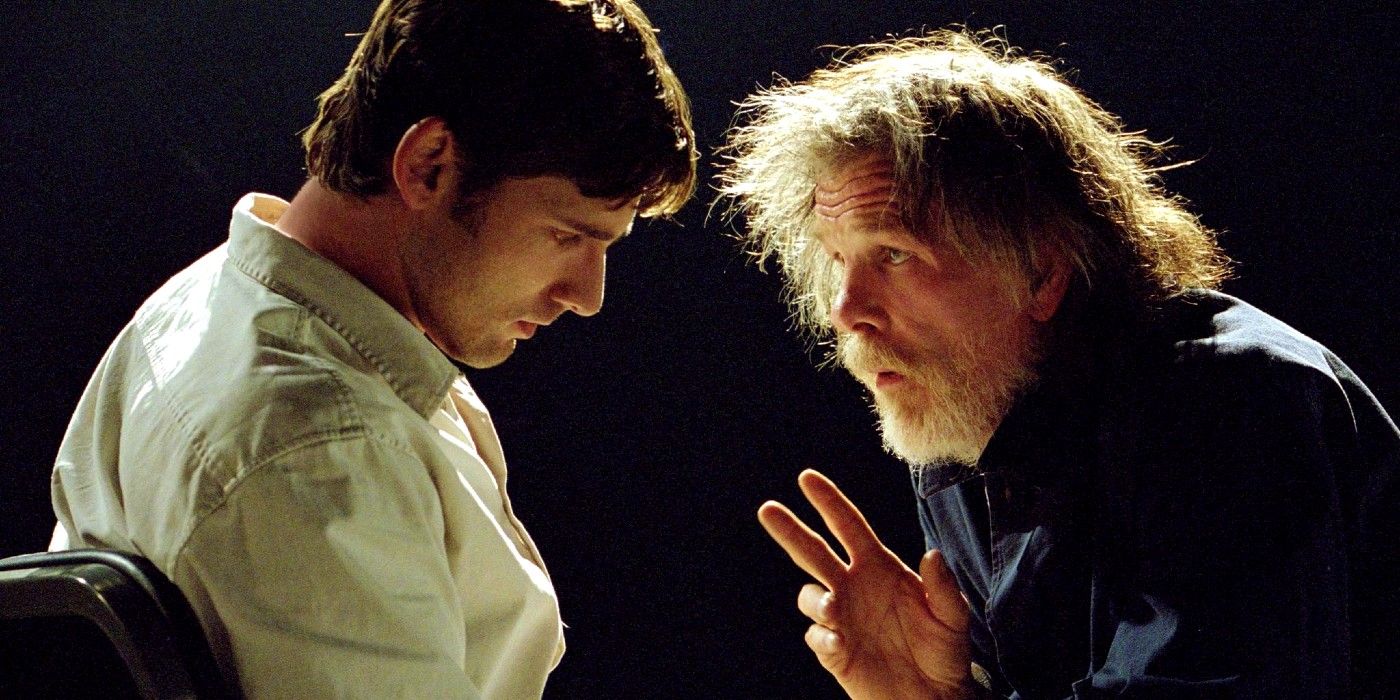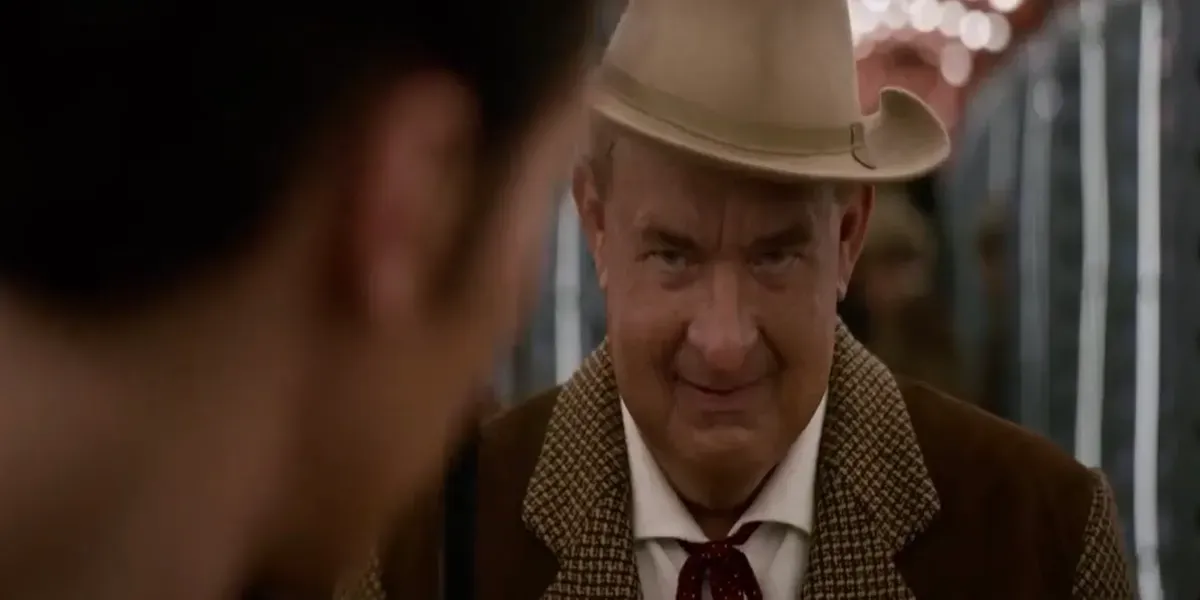This article discusses domestic abuse, as well as aspects of Elvis Presley's life depicted in Elvis, now in theaters.
Elvis' $31 million opening weekend proves that audiences are desperate for a bold blockbuster film that isn't about superheroes or Spider-Men. But the actual film itself is far more of a comic book movie than one might expect. In fact, while the film details Elvis Presley's obsession with the Marvel Family, Baz Luhrmann's directorial choices are surprisingly reminiscent of a Marvel superhero movie that's almost 20 years old.
Ang Lee's 2003 film Hulk was in some ways as unlikely a project in its time as a big-budget Elvis Presley biopic in 2022. Much like Luhrmann, Lee was already a director with a distinctive style by the time he tackled a well-established American icon. He didn't shy away from Bruce Banner's comic book roots but embraced them by using split screens, pans and freeze frames that mimic the look of a comic. This approach might not have been the best fit for the film's somber and disturbing story where Bruce comes to terms with the abuse he suffered as a child and his father's murder of his mother. However, anyone who's seen it would be hard-pressed to name another film that looks like it.
That is until Elvis came along. While Elvis Presley really existed, of course, Luhrmann's direction takes its cues from his childhood love of comics to depict his world as if it were straight out of a Golden Age Fawcett comic. His use of split screens and overlapping frames during Elvis' concerts might seem at first glance to mimic the TV Monitors during his televised events as they cut between different angles. But Luhrmann gives the game away when he features an animated comic book sequence early in the film. In this scene, an animated Elvis becomes Captain Marvel Jr. in order to save his father from a prison sentence. This detail will become important later on, but at that moment, the audience sees that Luhrmann's frenetic editing and composition allow the viewer to see the man's musical talent as just as much a superpower as anything a DC character could get from exclaiming "Shazam" or "Captain Marvel."
However, Elvis also captures the dark side of his talent. That's where the film's similarities to Hulk really stand out. Like Bruce Banner, Elvis Presley becomes a different person on stage as the awkward young man unleashes his pent-up emotion. However, much like Lee's version of Bruce Banner specifically, his power is used and abused by his own father.
Lee's 2003 film depicts Bruce's temperamental father exposing him to gamma radiation throughout his childhood, a series of events that culminated in the murder of Bruce's mother. When Bruce is turned into the super-powered Hulk years later, his father re-enters his life seeking to extract his power for his own. Nick Nolte's deranged performance as the character ends as he literally chews the scenery, sucking up his son's power to become a greater monster than he could ever imagine.
Luhrmann's depiction of Elvis' relationship with his father is surprisingly in the same vein. While Vernon Presley has never been widely perceived as an abuser, his actions dominated his son's life and, according to Elvis, did a surprising amount of damage. The film's comic book sequence shows that Elvis wished to be a superhero so he could break his father out of prison and always protect both him and his mother. His desire to take care of his parents and make sure they were happy continued even when he was an adult. Elvis paints it as the main reason he allowed Colonel Tom Parker (played by a devilish Tom Hanks) to make his father the primary person in charge of his financial and business affairs, although Parker retained all the real power over his career.
Yet Vernon does not protect his son from Parker's punishing influence in return. The film shows him refusing to get Elvis help for his drug addiction and health problems at Colonel Parker's insistence so Elvis can keep performing and Vernon can keep making money off him. By the film's climax, Vernon is the main person responsible for keeping Elvis under Parker's thumb, which the film implies contributed to Elvis' death at 42. Vernon may have never attacked his son or been jealous of his musical ability, but his metaphorical leeching off his son's power is just as damaging in Elvis as David Banner's literal leeching off his son in Hulk.
Some might say the comparison of a 2022 biopic about a real-life rock star to an overlooked 2003 superhero film is a far-fetched one, especially since the newer film downplays Elvis' own temper and penchant to lash out. However, Luhrmann's choice to mimic the comic book panel styling of Lee's film invites the audience to look a little closer at the stories of the two films. One film might be about the breakthrough years of rock and roll and the other might be about how it's not easy being green, but both at their heart are about two lost children who never escaped the hold of their fathers and both suffered for it.
See the similarity for yourself in Elvis, currently in theaters.




